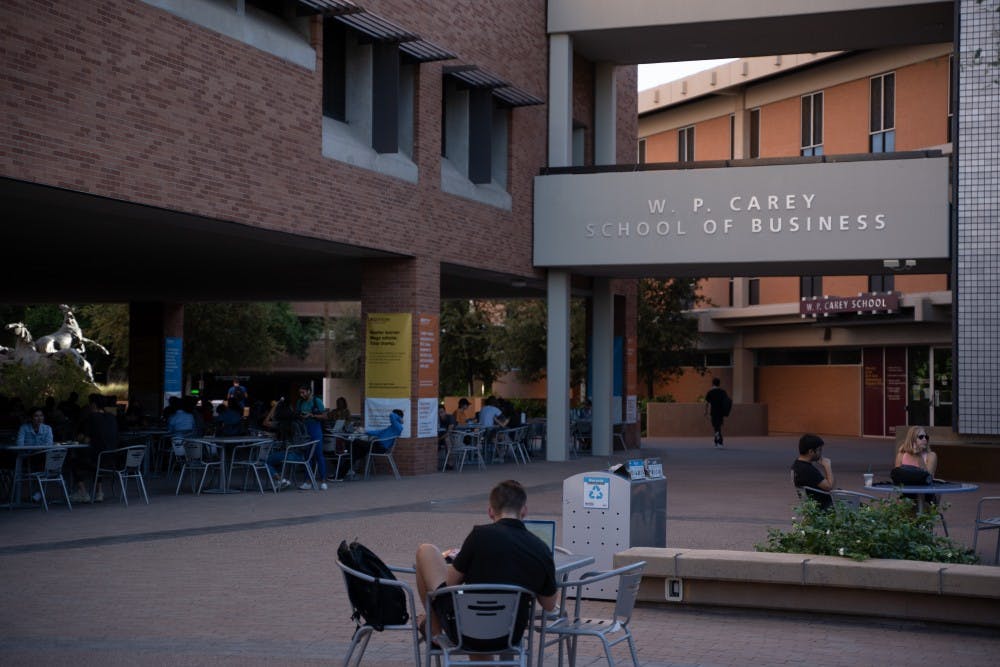As coronavirus cases have recently skyrocketed both nationwide and in Arizona, talk of lockdowns and restrictions — and the fear of them — has begun again.
This time, however, health and economic experts said there is a better understanding of how to manage the spread of COVID-19 while protecting and supporting jobs and local businesses in Tempe.
The necessary lockdowns and restrictions to prevent infections from continuing to rise can be targeted to the locations that need them, said Dr. David Dowdy, associate professor at the Department of Epidemiology at Johns Hopkins Bloomberg School of Public Health, in a Nov. 19 media briefing.
“There's no need for a one-size-fits-all and full lockdown of the entire country in order to reduce transmission to a tolerable level,” Dowdy said.
Hitendra Chaturvedi, a supply chain management professor at the W. P. Carey School of Business, said businesses must start preparing now for the new wave of the virus and its implications instead of waiting for help from the federal government.
Business owners, he said, need to get their finances figured out, become “best friends” with their tax advisor to assist them with finding tax breaks and resources, cut expenses, take their business online if possible, secure supplies and “band together with local business to lobby (government officials) for help now.”
The initial coronavirus relief bill passed in March provided funding to assist businesses through programs such as the Paycheck Protection Program and gave a lifeline to many businesses, but it has now expired. The Wall Street Journal reported that many larger businesses took advantage of the program.
Chaturvedi said he is optimistic more federal help will arrive from the before the end of the year because the current situation is so “grim.” This time, however, Chaturvedi said businesses need to lobby their local officials to ensure it reaches those who need it with a regulatory committee, not to those with political connections.
Dennis Hoffman, a professor of economics, wrote in an email that local governments can help by sending the “proper signals” to community members — following health guidelines, frequenting businesses who have implemented safety measures and encourage tipping at restaurants. Hoffman also wrote that they should encourage people to assist food banks if they can afford to.
Moving forward, providing the support communities need to be able to abide by any restrictions implemented is essential, Dowdy said.
"For closing down venues, we need to provide them the financial support that they need to stay afloat," Dowdy said. "If we're telling people to stay home and with their families again, we need to provide the structures for them where they're not going to lose their jobs."
The Arizona Department of Health Services reported 2,659 new cases Monday with confirmed case numbers averaging in the thousands throughout the month.
“The epidemic is uncontrolled currently in the U.S., rates have never been this high,” Gypsyamber D’Souza, an epidemiology professor at Johns Hopkins, said in the briefing. “And it is now not just in a few areas, but throughout the country.”
There is now exponential case growth in many states, "and that's translating into the beginnings of hospital systems being overwhelmed," D'Souza said.
Dowdy said with multiple potential effective vaccines on the horizon, the U.S. is now near the end of the first part of the pandemic.
Chaturvedi said he expects the arrival and distribution of an effective vaccine will create “momentum (that) is going to carry us into 2021” economically.
“When you don’t experience night, you don’t appreciate day,” he said. “What the coronavirus has done is to make us appreciate daylight even more.” The first rays of that light, he said, are beginning to be seen for all.
Reach the reporter at wmyskow@asu.edu and follow @wmyskow on Twitter.
Like The State Press on Facebook and follow @statepress on Twitter.

Wyatt Myskow is the project manager at The State Press, where he oversees enterprise stories for the publication. He also works at The Arizona Republic, where he covers the cities of Peoria and Surprise.




